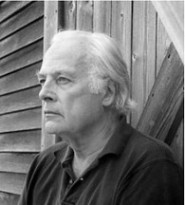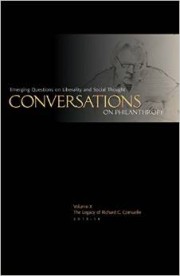Bourgeois Paternalism and Austrian Capital Theory
The June issue of The Freeman abounds with interesting essays that intersect our concerns, and may advance our work through their intersections with one another. In particular, what happens when we read Sandy Ikeda’s critique of David Brooks’ call for bourgeois paternalism alongside Peter Lewin’s argument for the continuing importance of Austrian capital theory ?
Ikeda observes that:
While it may be possible to help foster the formation of social capital and the fine structure of society by effective policing (governmental or nongovernmental) or by the design of public spaces or by government’s getting out of the way and letting energetic people in the community repair the fine structures themselves, no government can create what can only emerge spontaneously. That includes genuine communities, warts and all, instead of unsustainable projects and “Disneyland neighborhoods.”
Ikeda notes that government intervention may speed up the generation of measurable outcomes (perhaps in sync with political cycles?), but posits that these outcomes will likely be mirages. In the end, “healing a community by enabling freedom may take longer to produce visible results,” but “when it emerges from freedom, a living community stands a better chance of thriving and sustaining itself.”
The temptation to believe in the necessity of government paternalism stems in part from the extensive rationale for bureaucratic administration developed by social scientists for over a century as well as from the comparative lack of alternative theories of how voluntary social processes actually work. As Ikeda puts it, “the invisible social infrastructure of social capital is often hard to see even when it’s healthy.” The “invisible hand” of social coordination remains something of a mystery to most observers, including those who have done so much to explicate the processes of market coordination.
Is it possible that Austrian capital theory might assist our effort to make the processes of social flourishing more visible, to take seriously Tocqueville’s call for a new “science of association”?
Lewin sets the backdrop of Austrian capital theory by way Hayek’s critique of Keynes’ argument for economic stimulus:
Hayek pointed out that capital investment does not simply add to production in a general way but rather is embodied in concrete capital items. That is, the productive capital of the economy is not simply an amorphous “stock” of generalized production power; it is an intricate structure of specific interrelated complementary components.
Lewin goes on gracefully to itemize key components of the Austrian understanding:
- Production takes time: Production is increasingly roundabout, taking advantage of specialization. This means that putting together a “synergistic combination” that will comprise any complex production process may not necessarily be efficient in terms of time.
- Production reflects a division of knowledge: Capital goods are heterogeneous and each “knows how” to do specific things, and the same holds true of human participants in production.
- Government stimulus of consumption or production distorts market coordination: Often intended to shorten the time necessary for generating overall economic growth, government stimulus will tend to cause misalignments between patterns of production and patterns of consumption.
- Interest rates serve as accelerators and brakes on investment enthusiasms: During periods of vigorous entrepreneurial activity in a promising sector, only some entrepreneurs will use their capital investments to devise winning production processes. “Rising interest rates and the passage of time,” as Lewin puts it, “tend to reveal the less viable ventures and weed them out.” On the flip side, government policy that keeps rates artificially low tends to induce boom-bust cycles.
Are these insights applicable to the problems of bourgeois paternalism, which Ikeda describes as an effort to shorten the time in which we might realize measurable social outcomes? Can it shed light on the philanthropic enterprise, as well, which itself has often been likened to bourgeois paternalism?
At least on some points, the analogies seem pertinent, and we can draw them out somewhat by reference to Tocqueville’s insights in Democracy in America.
The production of community is a roundabout process. Economic capital is utilized in economic production processes. We might likewise posit that social capital is utilized in the production of social processes and social norms and that social entities and philanthropic enterprises are also complex, heterogeneous structures requiring synergistic combinations of knowledge and tools to accomplish their purposes. Tocqueville observed that Americans had “most perfected the art of pursuing their common desires in common.” Whatever the diverse ends of their associations were, participation in associations helped to shape the progress of social intelligence. “Sentiments and ideas renew themselves, the heart is enlarged, and the human mind is developed only by the reciprocal action of men upon one another,” wrote Tocqueville. It is arguable that forming spaces where this reciprocal action can occur is also a “roundabout” process that has its own time frame.
Flourishing communities make use of dispersed knowledge in ways government cannot. Tocqueville alludes more than once to the fact of the division of knowledge that can never be superintended by a central administrative power:
A central power, however enlightened, however learned one imagines it, cannot gather to itself alone all the details of the life of a great people. It cannot do it because such a work exceeds human strength. (I.1.5)
Government efforts to stimulate community will tend to change the patterns of sentiments and ideas held among people, and will increasingly reduce people to dependence on itself.
A government can no more suffice on its own to maintain and renew the circulation of sentiments and ideas in a great people than to conduct all its industrial undertakings. As soon as it tries to leave the political sphere to project itself on this new track, it will exercise an insupportable tyranny even without wishing to; for a government knows only how to dictate precise rules; it imposes the sentiments and the ideas that it favors, and it is always hard to distinguish its counsels from its orders. (II.2.5)
In democracies, where citizens depend upon association to exert social power, Tocqueville suggests that this dependence will increase as administrative power extends its scope of control over individuals and judges itself “responsible for the actions and the individual destinies of their subjects… if need be, to render him happy despite himself.” As this happens, “particular persons more and more view the social power in the same light; in all their needs they call it to their aid, and at every moment they fasten their regard on it as on a preceptor or guide.” (II.4.5)
Finally, interest also serves to accelerate or brake associational engagement. There is no simple analogue here to interest rates on money, but it is arguable that individual perceptions of their interests matter tremendously, and thus false signals from government can adversely shape patterns of association. Where the welfare state has a heavy hand, both individual initiative and philanthropic enterprise may irreparably diminish. Where properly personal and local interests are conceived to be matters of “the greater good,” we see distortion (and politicization) of the discernment processes that determine which problems or opportunities are most important as well as of the feedback loops that signal which responses to a problem or opportunity are most effective.
For Tocqueville, the doctrine of self-interest, properly understood serves as the mechanism that sustains a healthy alignment of personal interest with community interest and community interest with national interest.
Americans…are pleased to explain almost all the actions of their life with the aid of self-interest well understood; they complacently show how the enlightened love of themselves constantly brings them to aid each other and disposes them willingly to sacrifice a part of their time and their wealth to the good of the state…. The doctrine of self-interest well understood does not produce great devotion; but it suggests little sacrifices each day; by itself it cannot make a man virtuous; but it forms a multitude of citizens who are regulated, temperate, moderate, farsighted, masters of themselves; and if it does not lead directly to virtue through the will, it brings them near to it insensibly through habits.” (II.2.8)
The coordination of society as if by an invisible hand is thus effected as each man embodies a sort of disinterested self-interest . This interest can be distorted however by conceptions of the public good that require too much homogeneity of personal interests, by rationalizing policy in terms of a “moral equivalent of war” to put the inducements of patriotism on steroids, or by defenses of community that promote caricatures of individualism.
It would seem from a brief look at Tocqueville’s analysis, that capital theory might shed light on social processes as well as market processes, without requiring that we diminish the categorical differences between them. Social processes may employ monetary resources from time to time, but their health is not measured in terms of monetary profit. Nevertheless, there is a possibility that capital theory, methodological individualism, the subjective theory of value, and other tools of the Austrian tradition may help us illuminate the way social cooperation operates as a dynamic process over time and might help us reflect on the ways in which commercial, philanthropic, and government entities promote or hinder human flourishing. There is much more work to be done.




